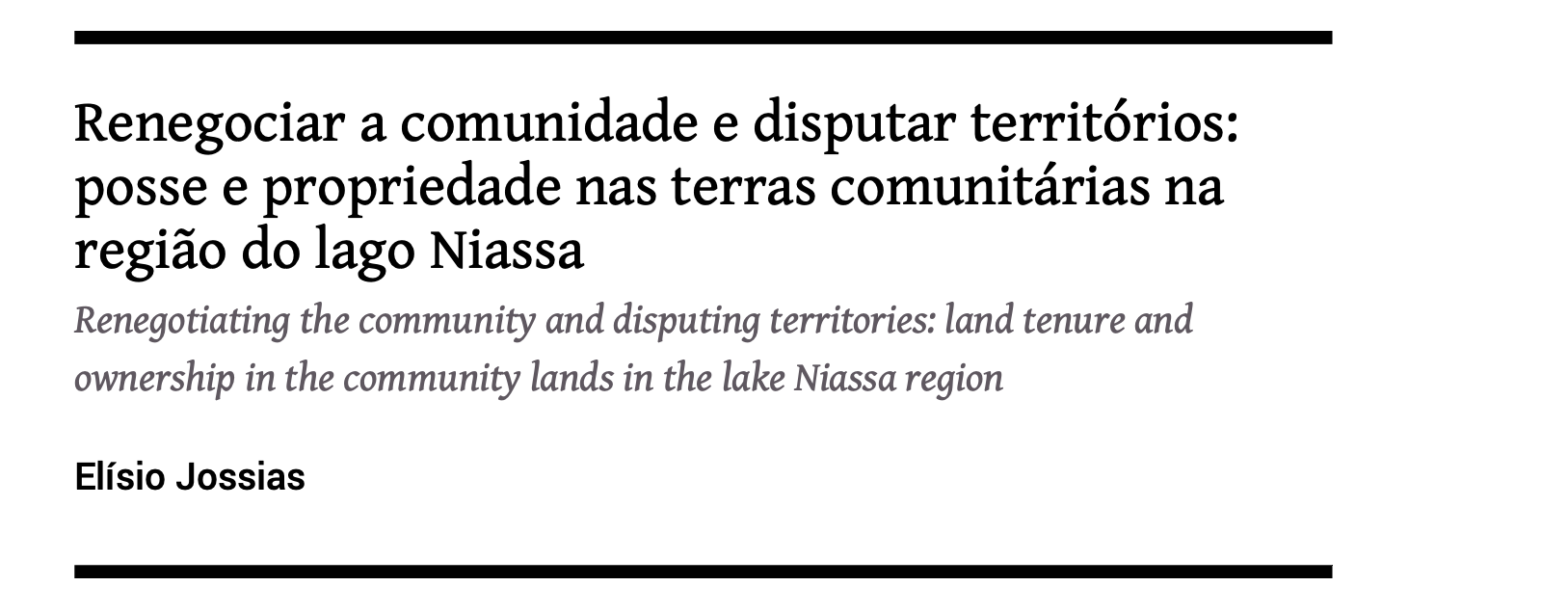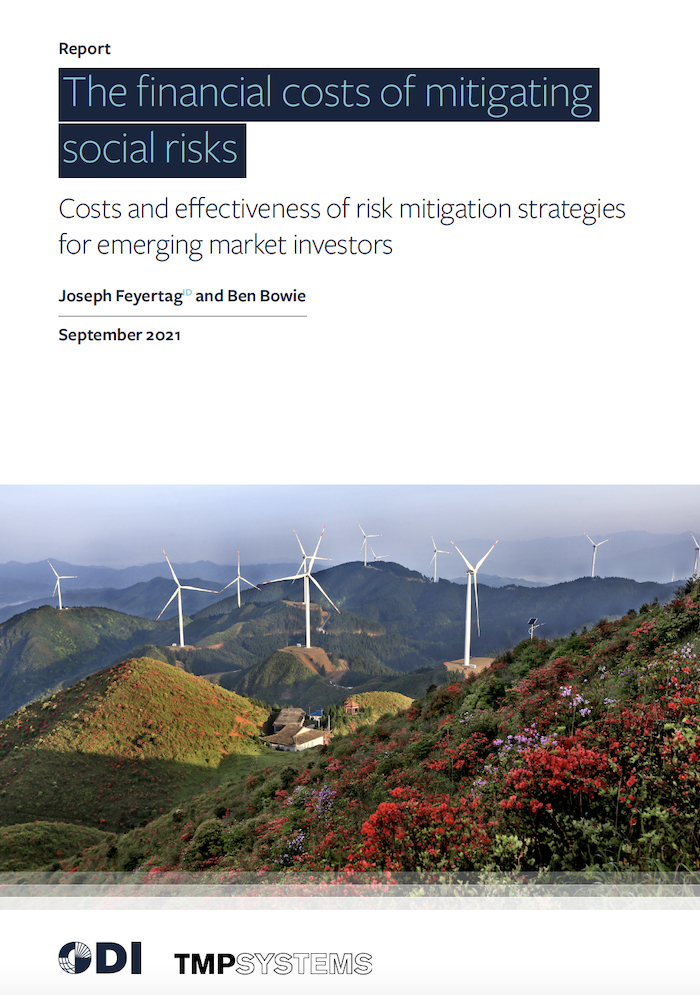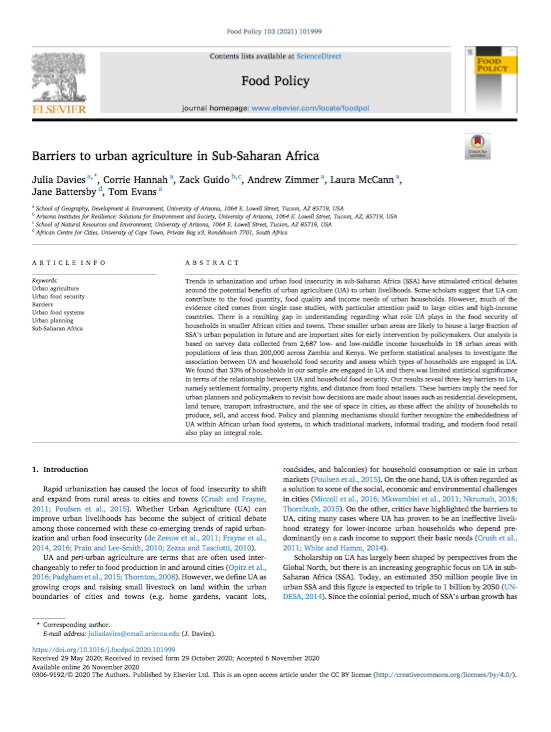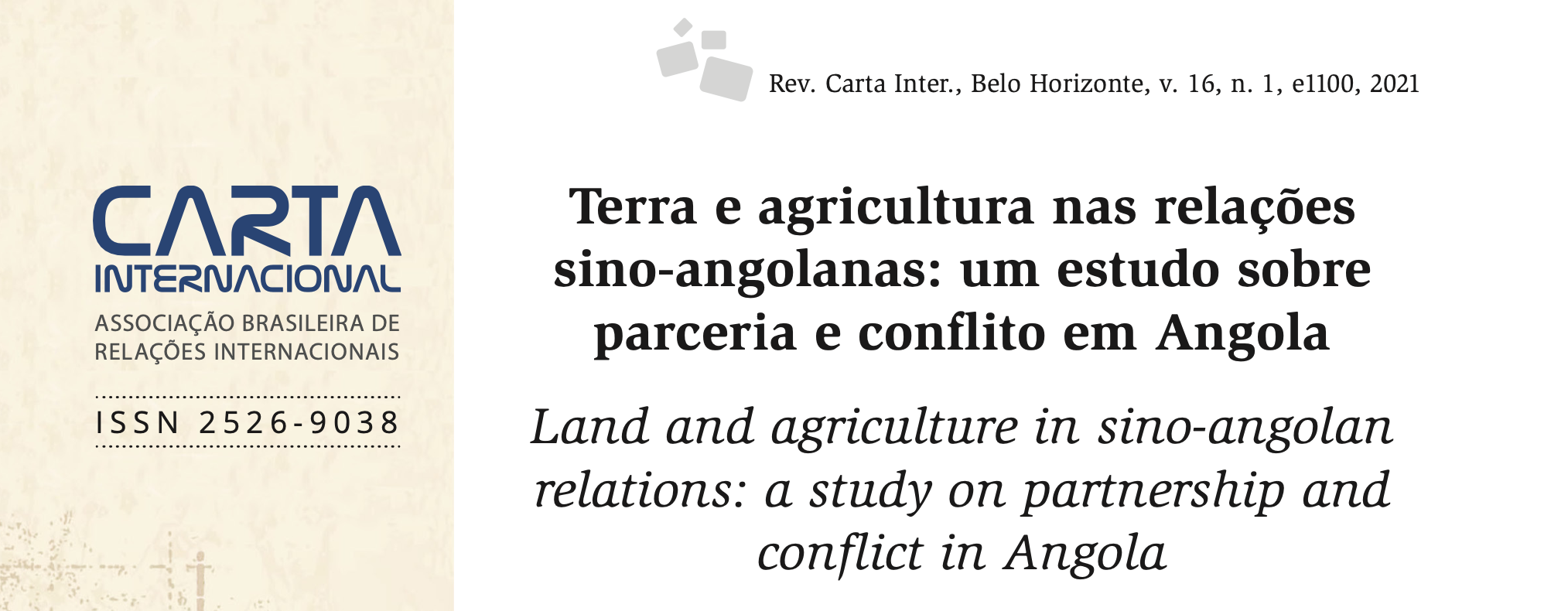The Support to Responsible Agricultural Investments (S2RAI) Project promotes internationally recognized principles and guidelines to ensure food and land tenure security for communities in the context of large-scale commercial land investment as well as strengthen the institutional…
O presente artigo parte da experiência de delimitação de terras comunitárias, em Cóbuè, província do Niassa, para analisar a interface entre as lideranças tradicionais e os sistemas costumeiros de terras, em Moçambique, enquadrando os debates sobre terra e território, posse e propriedade da…
This paper considers the foundations of contemporary African urban economies and how these intersect with the evolution of urban politics, carving a route through a wide range of existing literatures relevant to the politics and political economy of African urban development. It considers the…
This report assesses the costs and effectiveness of responsible investment practices in emerging market contexts. Its results make the business case for investments in social risk mitigation and avoidance practices. Such practices include community engagement efforts, impact assessments and the…
Trends in urbanization and urban food insecurity in sub-Saharan Africa (SSA) have stimulated critical debates around the potential benefits of urban agriculture (UA) to urban livelihoods. Some scholars suggest that UA can contribute to the food quantity, food quality and income needs of…
Face aux enjeux liés à la gouvernance foncière, plusieurs initiatives de cartographie participative ont été menées, au Bénin et ailleurs en Afrique. Une initiative de ce type est d’autant plus indispensable au Bénin, sachant que les limites des villages n’ont pas encore de reconnaissance…
A busca por recursos naturais sobressai nas investidas interna- cionais de alguns países, sendo a China uma das melhores ilustrações. Motiva a política externa chinesa, assim orientada, o abastecimento principalmente de matérias primas energéticas e de produtos agrícolas. Para as áreas…
Understanding the dynamics of agricultural expansion, their drivers, and interactions is critical for biodiversity conservation, ecosystem-services provision, and the future sustainability of agricultural development in Sub-Saharan Africa (SSA). However, there is limited understanding of the…
Issues relating to land are specifically referred to in five of the United Nations’ (UN) 17 Sustainable Development Goals, and UN-Habitat’s Global Land Tools Network views access to land and tenure security as key to achieving sustainable, inclusive and efficient cities. The African continent is…
Land laws provide a legal basis for addressing a country’s land-related strategies and are the central land policy instruments through which governments realise land policy objectives. Considering their vital role, it is imperative that land laws be evaluated to ensure that policy objectives are…
Despite the ongoing land administration reforms being implemented across sub-Saharan Africa (SSA), including Ghana, as a viable pathway to achieve tenure security and greater efficiency in land administration, the subject of land dispute resolution has received relatively less attention. Whereas…
This study was undertaken to examine local perceptions of the impacts of small-scale tree plantations, notably of Acacia decurrens (J.C. Wendl.) Willd., in Ethiopia’s Upper Blue Nile Basin. A particular focus of our study was on the different dimensions of livelihood sustainability centering on…








